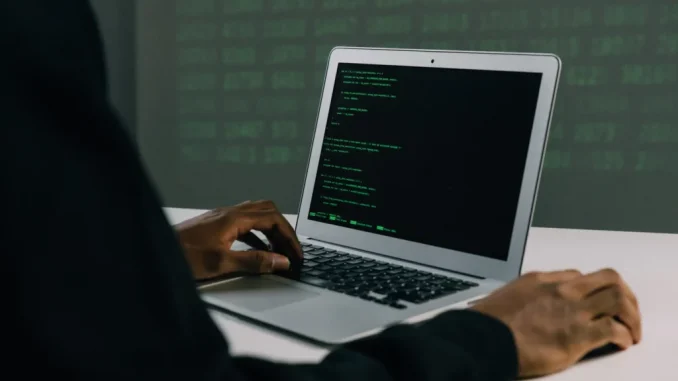
The enforcement of the cybersecurity levy by the Central Bank of Nigeria (CBN) has been described as a disincentive to financial inclusion and the cashless banking initiative, according to finance experts.
The experts made this statement following the apex bank’s earlier assurance to enforce the controversial cybersecurity levy, albeit at a significantly reduced rate, for the 2024-2025 fiscal year. Key stakeholders have urged that financial institutions, rather than ordinary Nigerians, bear the cost of the levy.
The CBN has announced that it will continue enforcing the contentious cybercrime levy of 0.005 per cent on all electronic transactions under its new 2024-2025 fiscal year guidelines.
Initially set at 0.5% but reduced to 0.005%, the levy applies to all electronic transactions and is mandated by the Cybercrime (Prohibition, Prevention, etc.) Act of 2015.
The CBN’s latest Monetary, Credit, Foreign Trade, and Exchange Policy Guidelines stipulate that banks and other financial institutions must deduct the levy from all electronic transactions.
“The CBN shall continue to enforce the payment of the mandatory levy of 0.005 per cent on all electronic transactions by banks and other financial institutions, in accordance with the Cybercrime (Prohibition, Prevention, etc.) Act, 2015,” the document states.
Ayokunle Olubunmi, Head of Financial Institutions at Agusto & Co, noted that the new levy will adversely affect financial inclusion in the country.
“The National Cybersecurity Levy is meant to strengthen Nigeria’s cyberspace and enhance cybersecurity. However, the mandated levy will increase the cost of electronic transfers and charges on bank accounts. The levy could also threaten the CBN’s cashless policy as it makes electronic transactions more expensive than cash transactions.”
Auwal Musa Rafsanjani, executive director of the Civil Society Legislative Advocacy Centre (CISLAC), described the levy as an anti-poor policy that would further burden already impoverished Nigerians.
“You cannot continue to punish the citizens. The government is allowing big corporations to do as they please while continuing to tax the poor. Nigerians need to be alive to be productive and contribute to the economy. If the government continues to emasculate Nigerians with these harsh economic policies, they will be unable to contribute to the economy. The anti-poor policies of this administration need to be reconsidered. There is too much oppression aimed at poor Nigerians.
“Moreover, banks have continued to deduct all sorts of fees from every transaction. This is not fair and is not how to generate revenue. The money the government is wasting and spending recklessly is where they need to stop if they want to fund and revive the economy, not by taxing the finances of poor people in the bank. We do not support this policy as it is not friendly to the underprivileged, while those in government feel no impact as they don’t pay taxes and have everything provided for them. This is not a good way to do things,” he said.
LEADERSHIP learned that the levy’s proceeds are intended to create a cybersecurity fund to bolster Nigeria’s banking sector against online attacks. The CBN emphasises the importance of cybersecurity measures and mandates payment service providers (PSPs), banks, and other financial institutions (OFIs) to comply with minimum cybersecurity standards. These standards include appointing chief information security officers (CISOs) to oversee cybersecurity compliance, in line with the 2022 risk-based cybersecurity framework.
Let Financial Institutions Pay For It, Not Customers
Stakeholders have vocally opposed the levy, warning that passing the cost onto the average Nigerian will exacerbate the already high cost of living and further burden struggling households.
Jide Awe, chief executive officer of Jidaw Systems Limited, stated that while the idea of a cybercrime levy is understandable in the context of securing Nigeria’s digital economy, imposing it on consumers is unacceptable.
“Nigerians are already grappling with inflation, high fuel prices, and economic hardship. This levy should be absorbed by the financial institutions, which have the capacity to shoulder it, rather than being passed down to the common man,” Awe asserted.
According to him, financial institutions are the gatekeepers of the digital economy, profiting immensely from the increasing number of electronic transactions in Nigeria; it is only fair that they contribute significantly to this initiative without transferring the burden to customers.
“I don’t have an issue with the cybersecurity levy, as the fund will be used to improve the cybersecurity landscape in Nigeria, making people feel safer using digital platforms for transactions. However, the question remains whether the government can strike a balance, taking into account what Nigerians are enduring. It is wise for the government not to further burden Nigerians with excessive levies and taxes.
“My recommendation, therefore, is for financial institutions to bear the brunt. They generate substantial revenue and should allocate a portion of the funds they lose to cyberattacks each year to finance the government’s project,” he said.
Lancelot Group executive chairman Adebayo Adeleke said, “This is a government that pledged to abolish multiple taxation. When the government begins to default on its pledges, it undermines its credibility.”
He further asked, “Are we now to levy individuals and businesses suffering from cyber-attacks? What exactly are we doing by impoverishing people and businesses to fund politicians’ insatiable appetites and an over-bloated bureaucracy? The government should focus on alleviating the current hardships faced by people and businesses due to energy crises and insecurity.”
Leave a Reply